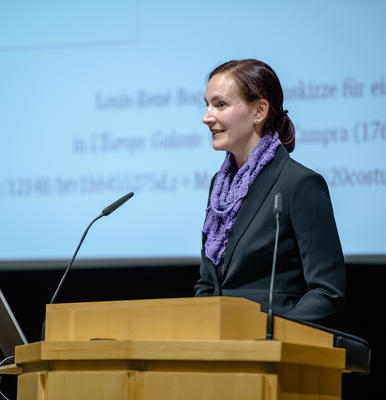Date:
Location:
The CMES Sohbet-i Osmani Lecture Series presents
PD Dr. Judith I. Haug
Research fellow in musicology, Orient-Institut Istanbul
Wojciech Bobowski was born a Pole in 1610 in Lwów, then part of the Polish-Lithuanian Commonwealth and now part of Ukraine. He was raised as a Protestant and trained as a church musician. These were times of great instability, with Lwów suffering frequent raids from Crimean Tartars. In one of these the eighteen year old Bobowski was taken prisoner by the Tartars, and his musical training meant he was sold to the court of Mehmed IV in Constantinople, whose reign saw the first flowering of Ottoman-Turkish music. The sultan provided an excellent education for Bobowski, with the result was that the Pole converted to Islam and took the name Alî Ufukî. He learnt fourteen languages including Arabic, French, Greek, Hebrew and Latin, translated the Anglican catechism and Bible into the Ottoman, and wrote a Latin explanation of Islam.
But today he is remembered primarily for his music. From his Protestant upbringing Ufukî knew the French melodies of the Genevan Psalter. In a fascinating example of 17th century cultural bridge building he composed fourteen Turkish Psalms by notating them using the Turkish modal system and translating the texts into Ottoman Turkish. Alî Ufukî’s unique psalter, Mezmurlar, remains in performance today, and has been brought to a wider audience by German vocal ensemble Sarband.
After 20 years in captivity Ufukî regained his freedom while visiting Egypt. He continued to live there, and became an important dragoman in the Ottoman Empire. A dragoman is defined as “an interpreter and guide in the Near East; in the Ottoman a translator of European languages for the Turkish and Arab authorities”.
Judith I. Haug studied musicology, history of the Middle Ages, and German language and literature of the Middle Ages at the University of Augsburg. She received her master’s degree there in 2005 with a thesis on Salomone Rossi’s Hebrew psalm settings (1622/23). In 2008, she obtained her doctorate at the University of Tübingen with a thesis on the dissemination of the Genevan Psalter in Europe and the Ottoman Empire. In 2010–12, she was a research assistant at the Virtual Library of Musicology.
From 2012–2016, she conducted her DFG-funded postdoctoral thesis project “Ottoman and European music in the compendium of Alî Ufukî (c. 1640): Interpretation, analysis and (trans-)cultural context” at the University of Münster. She was awarded the venia legendi (“Habilitation”) in musicology in 2017. After a postdoctoral position in the project “Corpus Musicae Ottomanicae (CMO) – Critical Editions of Near Eastern Music Manuscripts,” she is now a research fellow responsible for the research field musicology at the Orient-Institut Istanbul. Haug was a fellow of the German National Fellowship Foundation from 2001–2004 and 2005–2008; in 2015–16, she was a member of the Junges Kolleg (young researchers’ group) of the North Rhine-Westphalian Academy of Sciences, Humanities and the Arts.
Contact: Liz Flanagan
